CA Foundation Exam > CA Foundation Notes > Business Laws for CA Foundation > Cheatsheet: Nature of Contracts
Cheatsheet: Nature of Contracts | Business Laws for CA Foundation PDF Download
Contract Law Before the Indian Contract Act, 1872

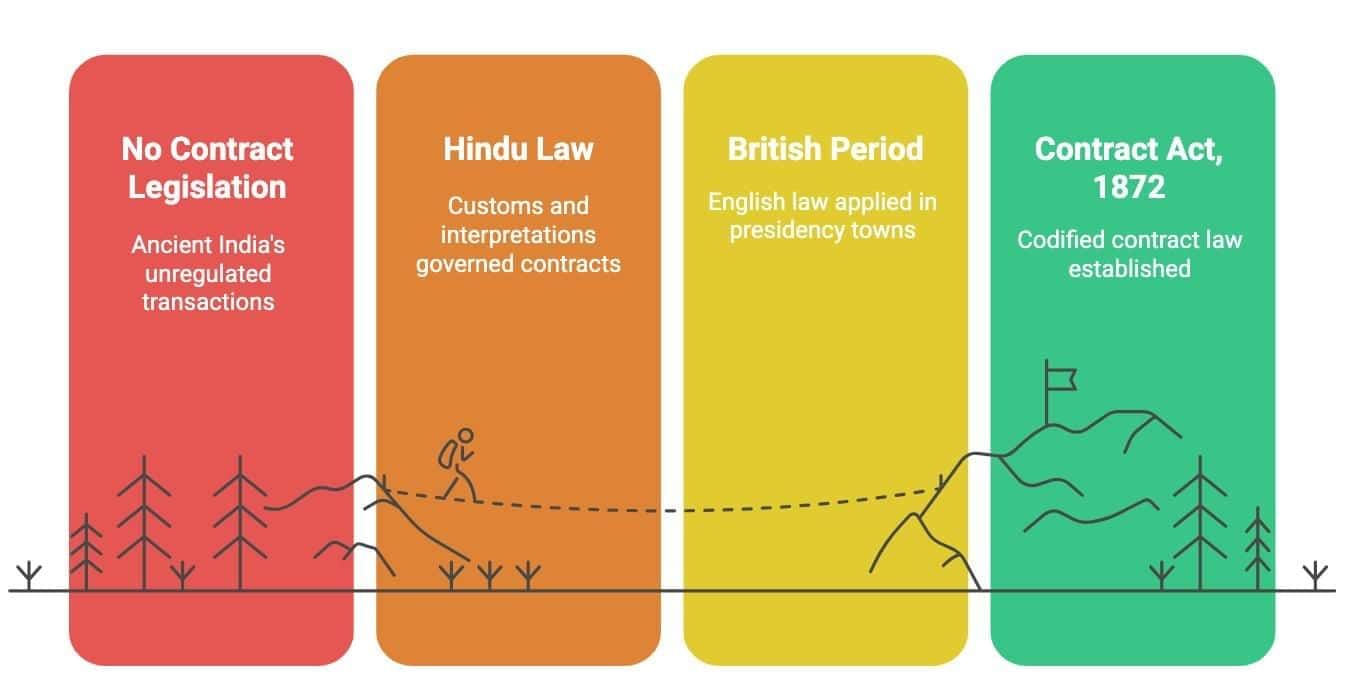
Introduction to Law of Contract

Definition of Contract
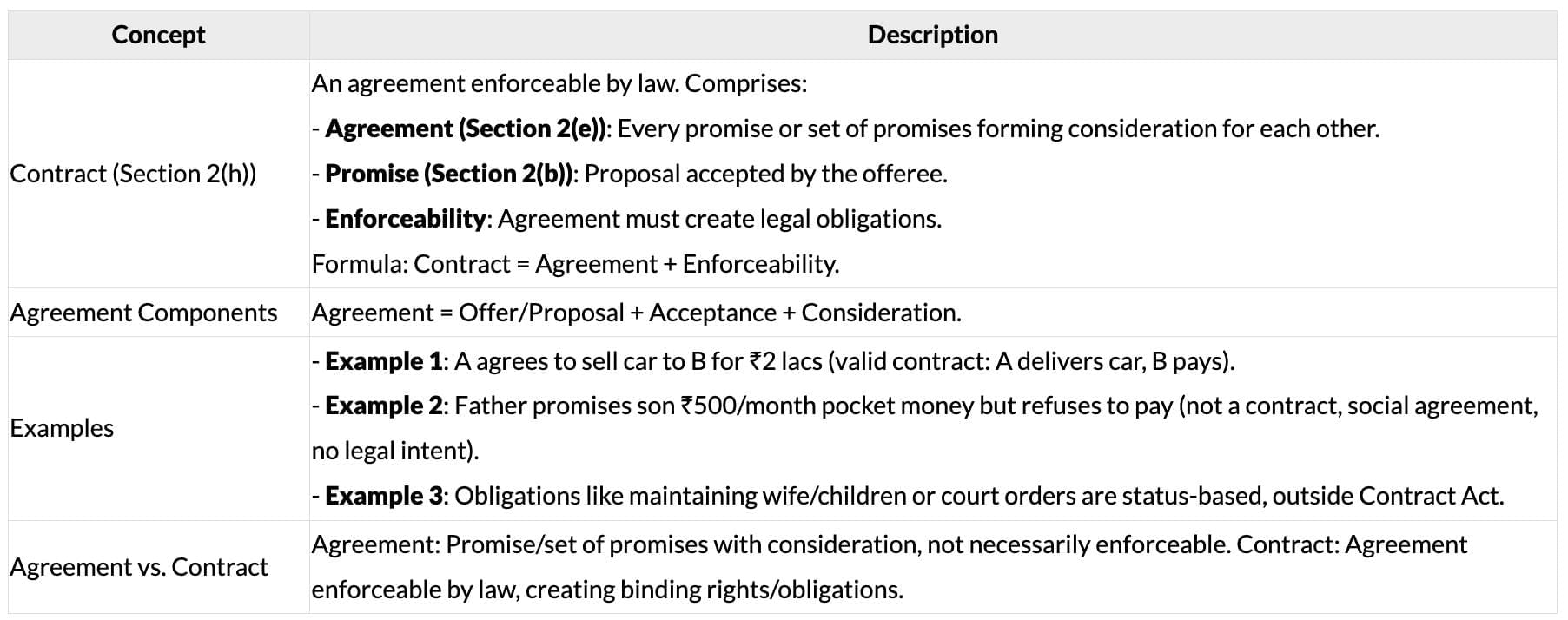
Essentials of a Valid Contract (Section 10)
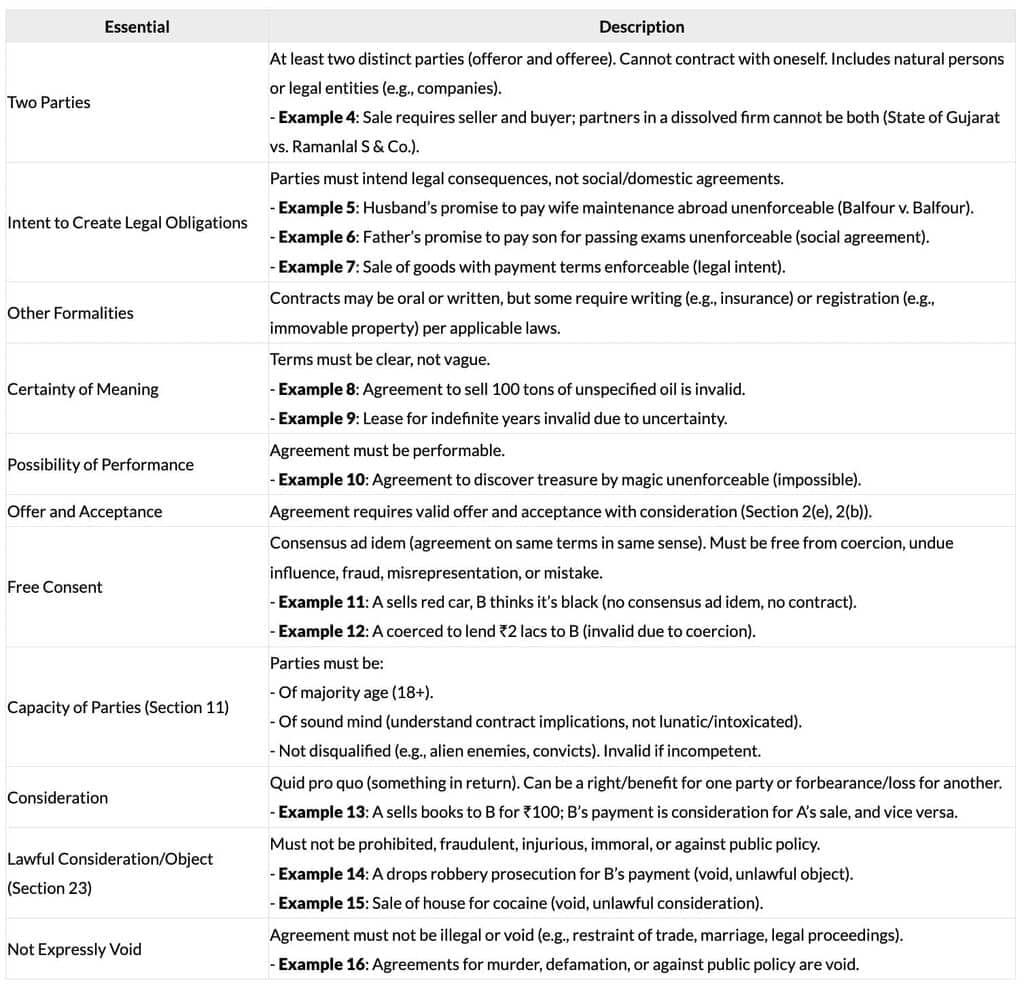
Types of Contracts

Proposal/Offer (Section 2(a))
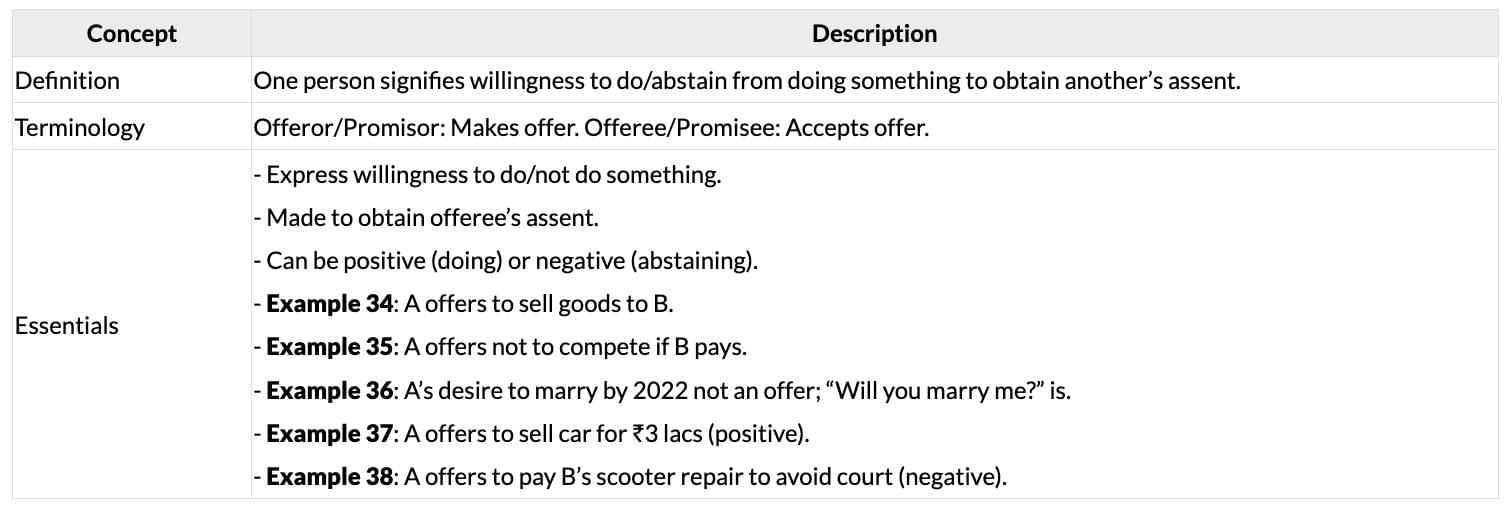
Types of Offers

Essentials of a Valid Offer
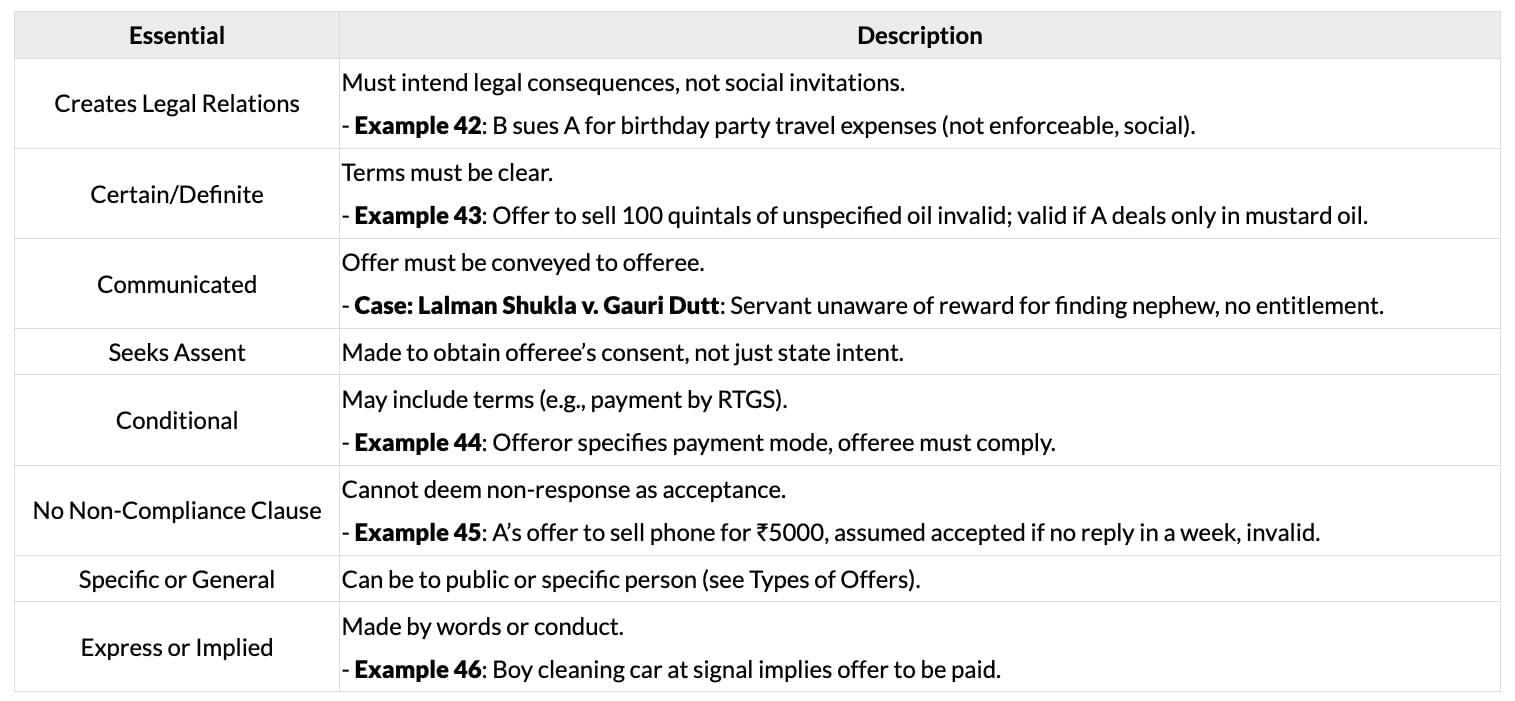
Offer vs. Invitation to Offer

Acceptance (Section 2(b), Indian Contract Act, 1872)

Legal Rules for Valid Acceptance
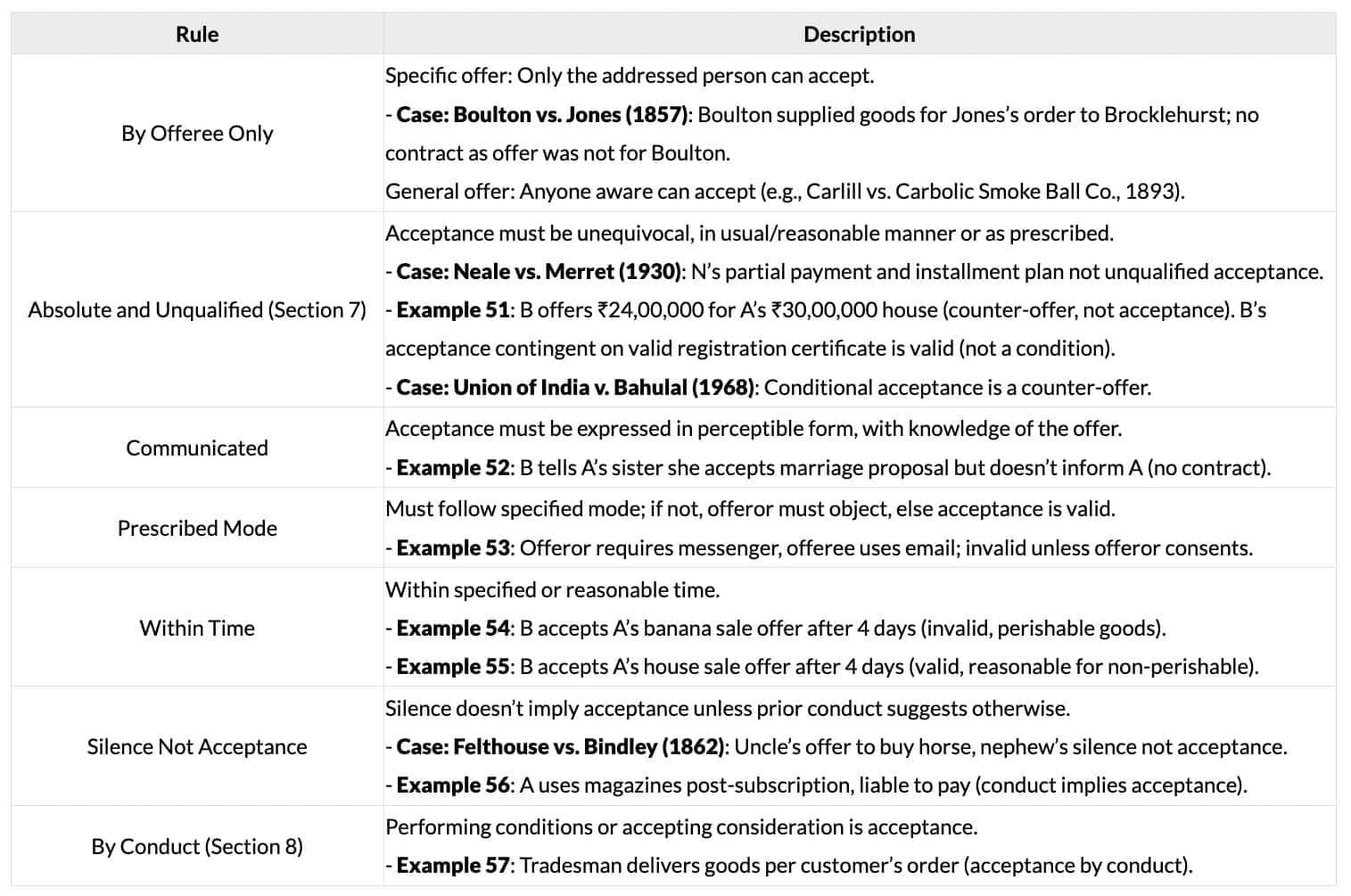
Communication of Offer and Acceptance
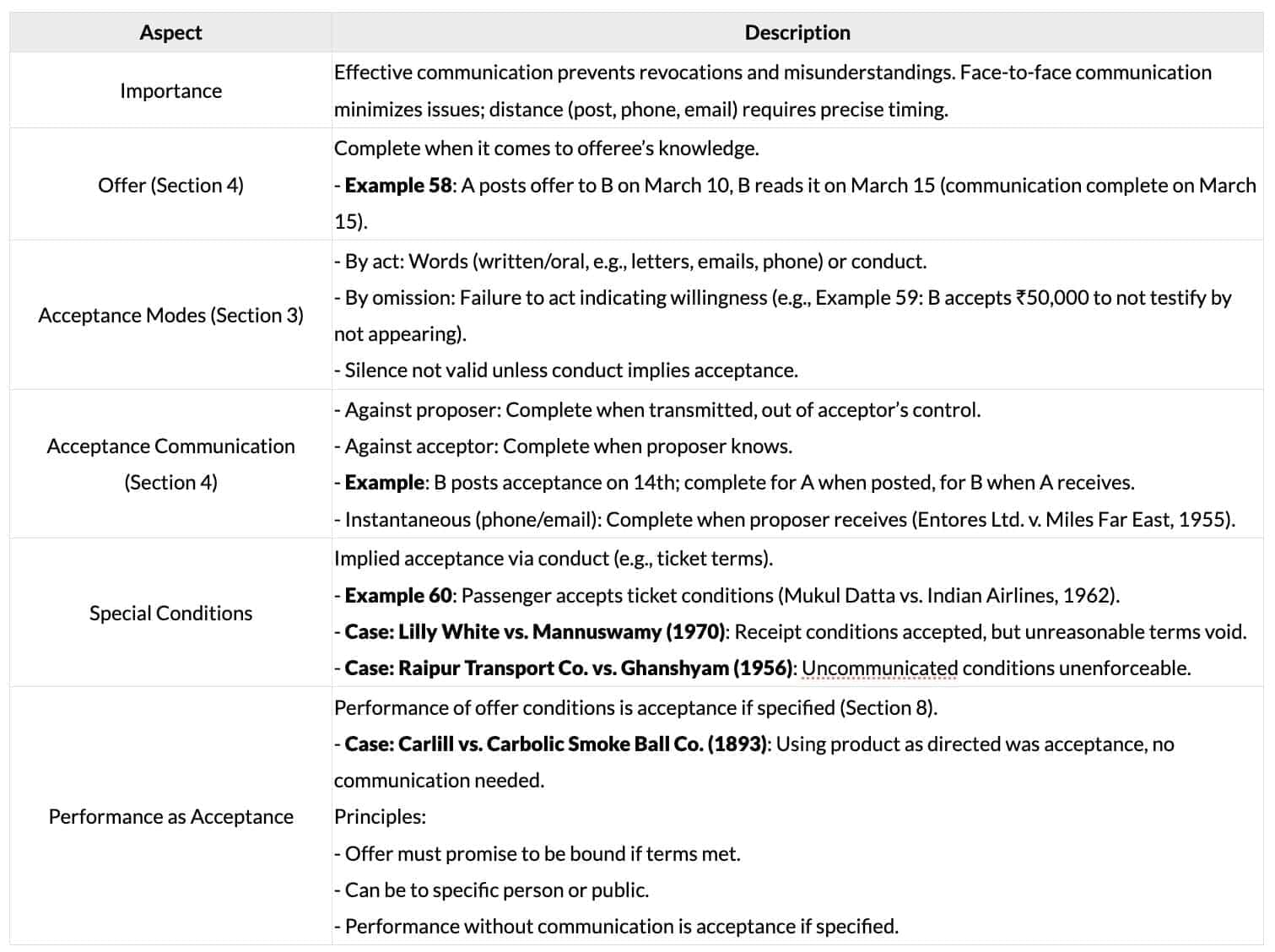
Revocation of Offer and Acceptance (Section 4, 5)
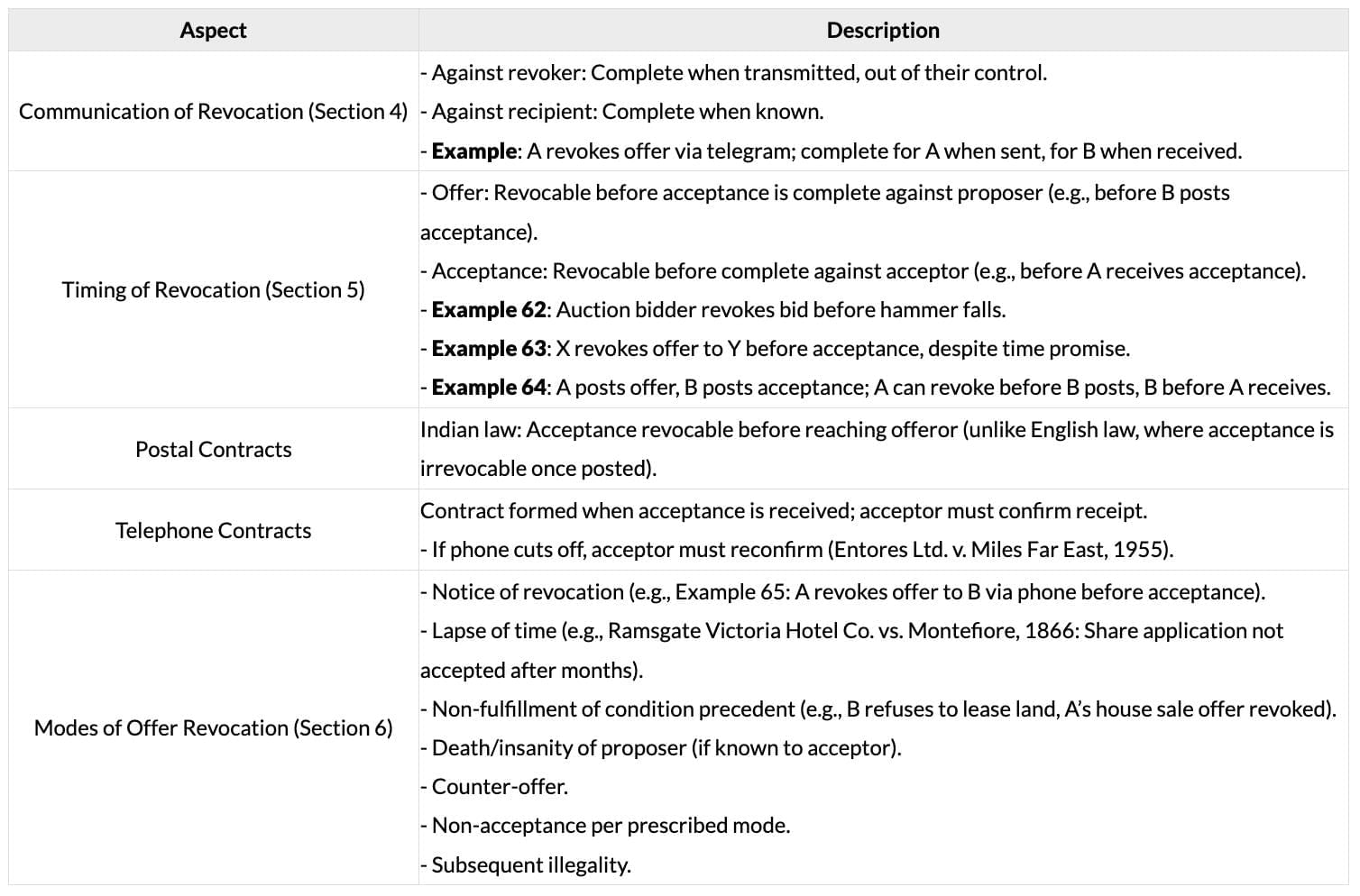
The document Cheatsheet: Nature of Contracts | Business Laws for CA Foundation is a part of the CA Foundation Course Business Laws for CA Foundation.
All you need of CA Foundation at this link: CA Foundation
|
32 videos|185 docs|57 tests
|
FAQs on Cheatsheet: Nature of Contracts - Business Laws for CA Foundation
| 1. What is the significance of the Indian Contract Act, 1872 in the context of contract law before its enactment? |  |
Ans. The Indian Contract Act, 1872 was a significant reform in the legal landscape of India, establishing a coherent framework for contracts. Before its enactment, contract law in India was based on various customary laws and principles derived from English common law, which lacked uniformity. The Act consolidated these principles into a single statute, outlining essential elements such as offer, acceptance, and consideration, thus promoting legal certainty and enforceability in contractual relationships.
| 2. What are the essentials of a valid contract as per Section 10 of the Indian Contract Act, 1872? |  |
Ans. According to Section 10 of the Indian Contract Act, 1872, the essentials of a valid contract include the following: 1) Offer and acceptance: There must be a clear offer by one party and an unqualified acceptance by the other. 2) Intention to create legal relations: Both parties must intend to enter into a legally binding agreement. 3) Lawful consideration: The contract must involve something of value exchanged between the parties. 4) Competence of parties: The parties must be legally capable of entering into a contract, which means they should be of sound mind, not minors, and not disqualified by law. 5) Free consent: The agreement must be made with the free consent of the parties, without coercion, undue influence, fraud, misrepresentation, or mistake. 6) Lawful object: The purpose of the contract must be lawful and not against public policy.
| 3. How does a proposal differ from an invitation to offer under the Indian Contract Act? |  |
Ans. A proposal, as defined in Section 2(a) of the Indian Contract Act, is a definite offer made by one party to another with the intention of creating a binding contract upon acceptance. In contrast, an invitation to offer is merely an expression of willingness to negotiate or invite offers from others. For example, advertisements or price lists are typically considered invitations to offer, as they do not create any binding obligation until a specific offer is accepted by the seller.
| 4. What are the types of offers recognized under the Indian Contract Act? |  |
Ans. The Indian Contract Act recognizes several types of offers, which include: 1) General Offer: An offer made to the public at large, which can be accepted by anyone. 2) Specific Offer: An offer made to a particular individual or group. 3) Cross Offer: When two parties make similar offers to each other simultaneously, neither of which has been accepted. 4) Counter Offer: An offer made in response to an original offer, which alters the terms of the original offer. Each type has its own implications for acceptance and the resulting contract.
| 5. What constitutes a valid acceptance under the Indian Contract Act? |  |
Ans. A valid acceptance, as per Section 2(b) of the Indian Contract Act, must be an unqualified and absolute agreement to the terms of the offer. It must be communicated to the offeror, and acceptance can be expressed by words, conduct, or implied by law. Additionally, acceptance must occur within the time frame specified in the offer, or within a reasonable time if no time frame is provided. Moreover, it must be made in the manner prescribed by the offeror, if any, and must not impose new conditions or alter the terms of the original offer, as this would constitute a counter offer rather than acceptance.
Related Searches





















